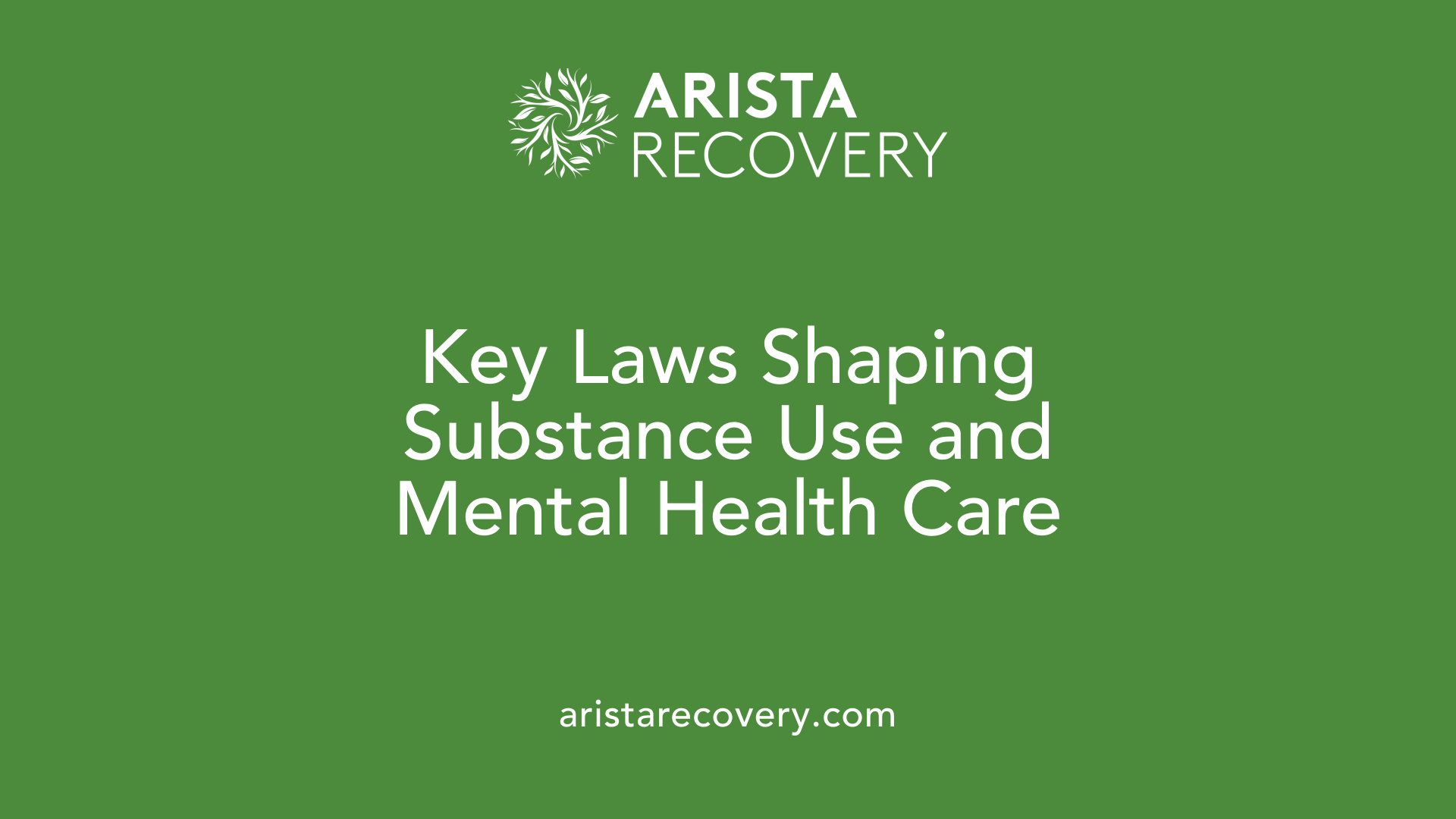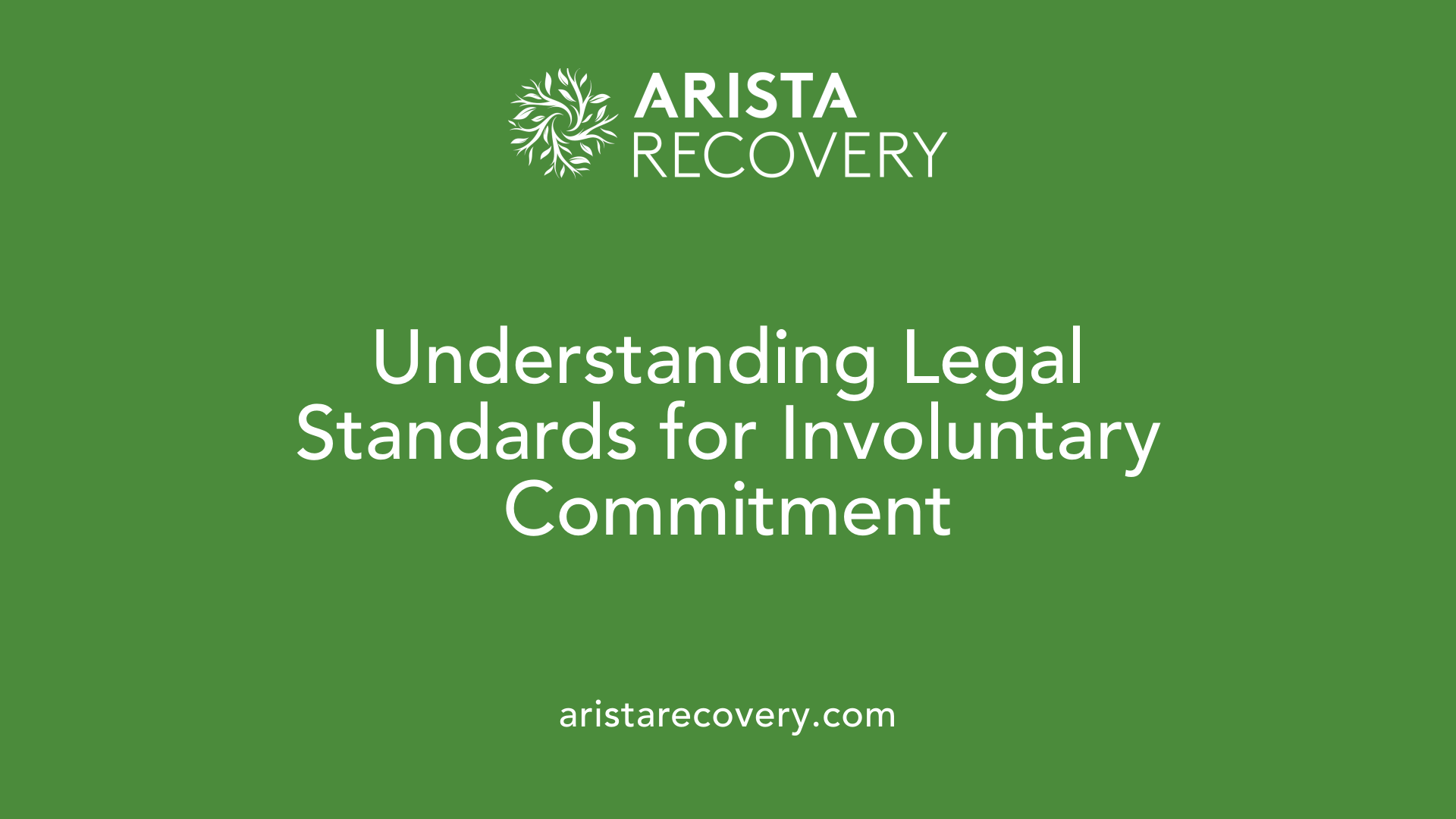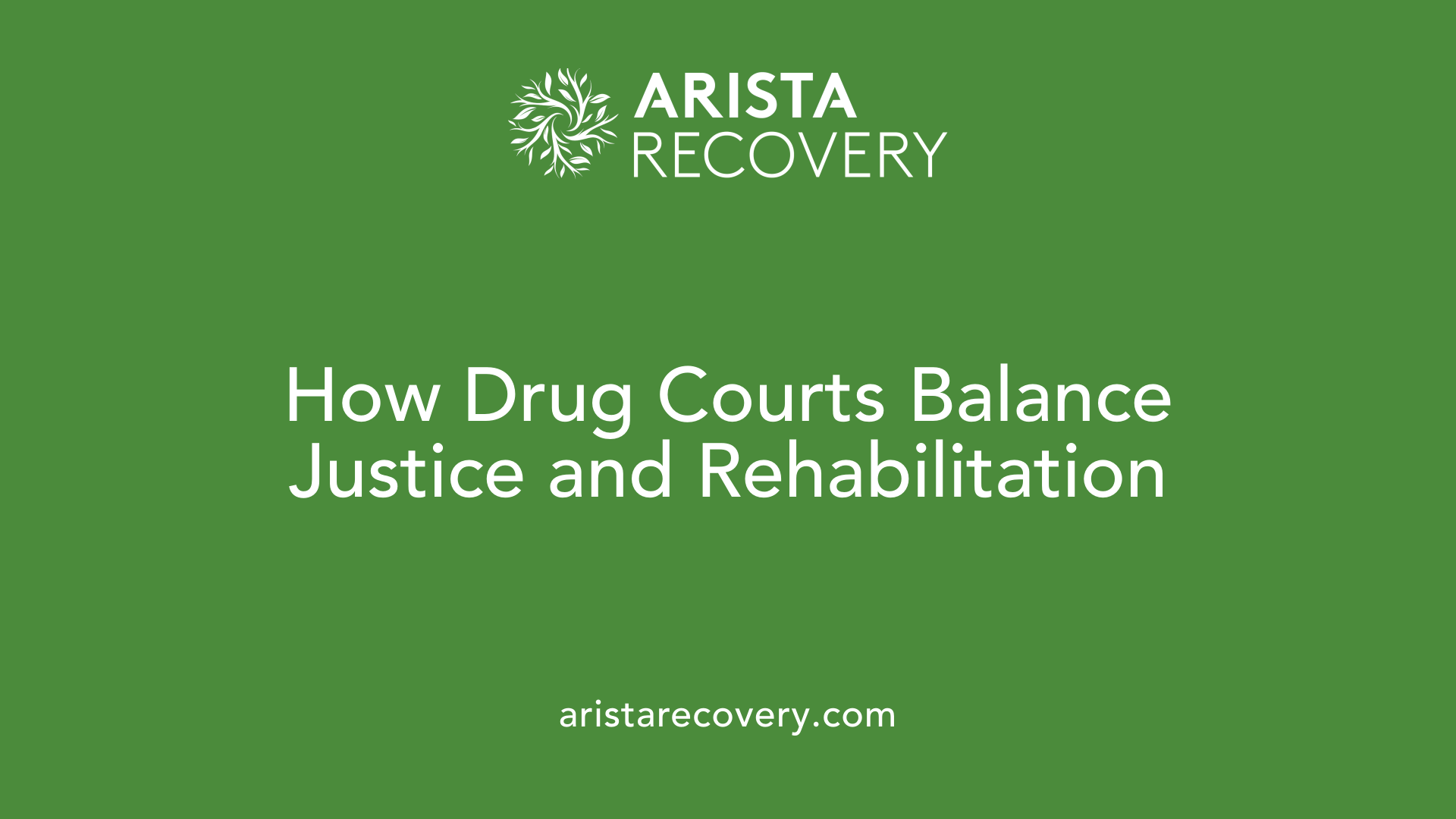
How to navigate legal issues related to substance abuse
Understanding Your Rights and Resources in Substance-Related Legal Matters
Navigating the complexities of legal issues related to substance abuse requires a comprehensive understanding of laws, rights, and available support. Whether you are seeking treatment, facing criminal charges, or involved in family court, awareness of legal protections and resources can make a significant difference in your case. This article provides an in-depth overview of how to approach these issues effectively, emphasizing potential resources, legal protections, court procedures, and strategies for safeguarding your rights throughout your recovery journey.
Legal Aid Resources for Substance-Related Cases
What resources are available for legal aid in substance-related cases?
Individuals facing legal issues connected to substance use can access a variety of supportive services. The Legal Aid Society and other legal aid organizations provide free legal assistance to low-income individuals. These services address critical concerns such as criminal records expungement, access to housing, employment rights, healthcare, and combating discrimination.
The Legal Aid Society offers direct legal representation, educational programs, and advocacy efforts to influence policy improvements. Specific programs like the Legal Assistance for the Community (LAC) help with medication access, patient privacy rights, and legal challenges related to discrimination.
In addition, SAMHSA’s National Helpline (1-800-662-HELP) is a vital resource, providing round-the-clock, confidential referrals to treatment centers, support groups, and community organizations. This service helps individuals identify appropriate treatment options and navigate available support systems.
By combining legal aid organizations and mental health resources, individuals can better manage their legal concerns related to substance use while gaining access to necessary treatment and community support.
Legal Framework Governing Substance Abuse and Mental Health

What laws govern substance abuse and mental health?
The legal landscape around substance abuse and mental health in the United States encompasses several important federal laws. One fundamental law is the Mental Health Parity and Addiction Equity Act (MHPAEA), which mandates that insurance coverage for mental health and substance use disorder treatments must be comparable to that of medical and surgical benefits. This law helps reduce financial barriers and promotes access to necessary care.
Another critical piece of legislation is the Affordable Care Act (ACA). The ACA broadens health coverage options, prohibits discrimination based on mental health conditions, and supports the expansion of treatment programs for individuals facing mental health or substance abuse challenges.
Regulating the substances themselves is the Controlled Substances Act, which classifies drugs into different schedules based on their potential for abuse and medical use. This classification controls the manufacturing, prescribing, and distribution of controlled substances, including opioids. It also establishes standards for treatment programs, such as opioid treatment facilities, and enforces confidentiality protections under 42 CFR Part 2.
Protecting the rights of individuals with mental health issues and addictions is the Americans with Disabilities Act (ADA) and the Rehabilitation Act. These laws prohibit discrimination in employment, housing, and services, ensuring equal opportunities. They also require reasonable accommodations for qualified individuals and recognize co-occurring disorders as disabilities.
Recent legislative efforts like the Bipartisan Safer Communities Act and the SUPPORT Act provide additional support by funding prevention initiatives, treatment expansion, and emergency response improvements. Together, these laws create a comprehensive framework to ensure access, safety, and fairness in addressing substance abuse and mental health needs.
Legal Rights of Individuals in Substance Abuse Cases

What are the legal rights of individuals in substance abuse cases?
People facing issues related to substance use have important legal protections that help safeguard their interests and dignity. One of the most fundamental rights is confidentiality. Under federal regulations such as 42 CFR Part 2, treatment records are strictly protected, and disclosures require the patient's informed consent unless there are specific legal or emergency situations.
Legally, individuals cannot be discriminated against in employment, housing, or access to social services because of their substance use history. Laws like the Americans with Disabilities Act (ADA) and the Rehabilitation Act recognize recovery from substance use disorder as a form of disability, providing protections against unfair treatment. Employers, for example, are required to make reasonable accommodations, such as flexible work hours, for employees in recovery.
Access to legal help is also a right. Individuals can seek representation through public defenders, legal aid organizations, or specialized programs like drug courts, which focus on treatment rather than punishment. These avenues provide opportunities for fair hearings, equitable treatment, and support throughout legal proceedings.
During legal cases, especially in criminal or civil courts, due process rights are upheld to ensure fairness. This includes rights to a fair hearing, the opportunity to be represented by legal counsel, and protections from unwarranted searches or seizures related to drug testing. Additionally, laws like the Good Samaritan laws protect individuals who seek emergency assistance for overdoses from prosecution or certain charges, encouraging timely help without fear of legal repercussions.
Collectively, these rights aim to promote recovery, prevent discrimination, and ensure justice for individuals dealing with substance use issues. Understanding and exercising these protections can greatly influence treatment outcomes and overall well-being.
Privacy Protections and Patient Rights during Treatment

What are the privacy protections and patient rights related to substance abuse treatment?
Patients involved in substance abuse treatment are protected by strict federal laws designed to keep their health information confidential. The most specific regulation is 42 CFR Part 2, which applies solely to records related to substance use disorder treatment, research, and counseling. This regulation requires that any disclosure of a patient’s treatment records must generally be made with a written, informed consent from the patient.
The consent form must clearly specify what information is being shared, with whom, and for what purpose. It also must include warnings that the information cannot be redisclosed without further consent, which helps protect the patient's privacy.
There are exceptions where disclosures are allowed without patient consent. These include emergency medical situations where the patient’s life or health is at risk, mandatory reporting of child abuse or neglect, and disclosures to law enforcement under specific legal circumstances.
Recent regulatory updates in 2024, known as the Final Rule for 42 CFR Part 2, have expanded patient rights significantly. Patients may now provide a single consent that covers future disclosures, simplifying the process. They also have the right to revoke prior consent, thereby limiting or stopping future disclosures of their information.
Additionally, patients can access their own treatment records directly, promoting transparency and allowing them to better understand and manage their treatment process. To ensure patients are aware of their rights, healthcare providers are required to provide clear notices about confidentiality protections, often aligned with HIPAA’s Privacy Notice standards.
These legal protections aim to balance the need for privacy with the necessity of sharing information for effective treatment and legal compliance. Violations of these laws can result in significant penalties, emphasizing their importance in safeguarding patient rights.
Legal Issues in Family Law and Custody Cases
What legal issues are involved in family law and custody cases where substance abuse is a factor?
In family law and custody disputes, substance abuse can significantly influence court decisions, primarily focusing on the child's safety and overall well-being. Courts evaluate the fitness of parents through various evidence, including drug tests, medical records, and testimony from witnesses or professionals.
Legal proceedings often involve drug testing, which may be ordered if there is reasonable suspicion of ongoing substance use. Positive drug test results or inconclusive findings can serve as evidence that a parent may be impaired, which potentially hampers their custody or visitation rights.
Courts may impose restrictions such as supervised visitation or mandatory participation in treatment programs to ensure the child's safety. In more severe cases where a parent's substance use poses a clear danger, the court may consider terminating parental rights.
Child Protective Services (CPS) often conducts investigations when reports of neglect or abuse related to substance use are made. If CPS finds evidence of neglect, they may take protective actions, including removing the child from the home.
However, courts also prioritize reunification. If parents actively engage in substance abuse treatment and demonstrate sobriety over time, their chances of regaining custody improve. Evidence around treatment compliance and ongoing recovery efforts are crucial components in court evaluations.
Below is an overview table summarizing the legal considerations:
| Aspect | Legal Action | Purpose | Additional Details |
|---|---|---|---|
| Drug Testing | Court-ordered | Assess parental impairment | Based on suspicion or testimony |
| Evidence Gathering | Medical records, witness testimony | Support findings of neglect or impairment | Includes drug test results and behavioral reports |
| Custody Restrictions | Supervised visits, probation | Protect child | Imposed if parental impairment is confirmed |
| Termination of Rights | Severe or ongoing issues | Remove harmful environment | Rarely, after failed attempts at intervention |
| Child Protective Services | Investigation | Ensure child's safety | Reports from concerned parties or authorities |
Being informed about legal rights and responsibilities, parents are encouraged to seek treatment, comply with court orders, and demonstrate their commitment to sobriety. This proactive approach can help in retaining custody or achieving reunification.
For further understanding, searching “Family law and custody issues involving substance abuse” provides additional resources, case law, and guidance for affected families.
Legal Considerations in Substance Use Treatment and Recovery
What are the legal considerations in substance abuse treatment and recovery?
Legal issues surrounding substance abuse treatment and recovery are complex and multifaceted. They encompass protections for individuals’ rights, confidentiality, and non-discrimination, as well as rules governing involuntary commitment and interactions with the legal system.
Federal laws like the Americans with Disabilities Act (ADA) and the Rehabilitation Act offer protections to those in recovery, ensuring they are not discriminated against in employment, housing, or public accommodations. These laws also require reasonable workplace accommodations for employees recovering from substance use disorders. Additionally, the Mental Health Parity and Addiction Equity Act promotes equal access to mental health and substance use disorder treatment.
Confidentiality is a cornerstone in treatment, with laws such as 42 CFR Part 2 and HIPAA strictly regulating how patient information can be shared. Disclosures typically require patient consent, and there are specific rules about reporting abuse or neglect involving children.
Involuntary commitment procedures are guided by the doctrine of parens patriae, allowing government intervention when individuals cannot care for themselves due to mental health or substance use issues. Such commitments require a high standard of proof—'clear and convincing evidence'—and involve legal processes that protect patient rights.
Legal considerations also extend to managing criminal charges related to substance use, such as DUI, possession, or trafficking. Courts may incorporate treatment programs, especially through drug courts, which emphasize treatment over punishment for non-violent offenders.
Understanding the legal landscape helps individuals in treatment and recovery navigate rights, obligations, and protections. It also promotes a legal environment that supports effective treatment, safeguards personal information, and upholds fair treatment during recovery processes.
| Legal Aspect | Description | Related Laws / Regulations |
|---|---|---|
| Involuntary Commitment | Processes for civilly detaining individuals unable to care for themselves due to substance use | Parens Patriae doctrine, Addington v Texas standard (clear and convincing evidence) |
| Confidentiality Protections | Laws governing privacy of treatment records | 42 CFR Part 2, HIPAA |
| Anti-Discrimination | Protections against workplace and service discrimination | ADA, Rehabilitation Act |
| Legal Issues in Criminal Justice | How charges influence treatment options | Drug courts, probation, sentencing laws |
| Treatment Rights | Rights to access and participate in treatment programs | Federal and state regulations |
Navigating legal considerations effectively requires awareness of these laws and protections, along with consultation with legal professionals when needed.
Legal Implications of Involuntary Commitment for Substance Use Disorders

What are the legal implications of involuntary commitment for substance use disorders?
Involuntary commitment laws for substance use disorders involve careful legal considerations to balance individual rights with public health needs. Generally, these laws allow for the detention of individuals who are deemed a danger to themselves or others due to substance abuse, or who are incapacitated physically or mentally. This process aims to provide treatment to those who cannot seek help voluntarily.
A key legal aspect is the requirement of due process protections. Individuals subject to involuntary commitment must be provided with a hearing and the opportunity to be represented by a legal counsel. These safeguards ensure that detention is justified and that individuals' rights are respected.
The standards for civil commitment involve proof by 'clear and convincing evidence.' This legal benchmark requires a high level of certainty that the person meets specific criteria, such as danger or incapacity, before they can be detained involuntarily.
Recent legal developments show a growing trend to include substance use disorders within involuntary commitment statutes. Policymakers and health authorities recognize that early intervention can prevent overdose deaths and reduce harm. However, challenges remain, including ethical debates about involuntary treatment, limited resources, and questions about the long-term effectiveness of detention and treatment.
Understanding these legal implications is vital for practitioners, patients, and advocates working within the complex intersection of health rights and public safety.
Operation and Legal Standards in Drug Courts

How do drug courts operate within the legal system?
Drug courts serve as specialized legal arenas that focus on addressing substance abuse among offenders. Instead of traditional punishment, they emphasize rehabilitation and community reintegration. The process begins with a comprehensive assessment to determine eligibility, often requiring voluntary participation or a court order.
Participants in drug courts are subject to a structured regimen that includes regular drug testing, court appearances, and adherence to treatment plans. Throughout the process, legal safeguards such as due process rights, notice of proceedings, and opportunities to be heard are maintained.
Legal issues within drug courts involve constitutional protections like Fourth Amendment rights against unreasonable searches, as well as rights related to religious freedom and confidentiality under federal law.
Sanctions for non-compliance, such as brief jail sentences or intensified treatment, are carefully administered to ensure they remain within legal standards. Court decisions and procedures are governed by constitutional principles, with a balance struck between enforcing compliance and respecting individual rights.
Overall, drug courts operate through a combination of judicial oversight, legal regulations, and therapeutic interventions. They aim to reduce recidivism by integrating legal accountability with treatment, ensuring that participant rights are protected at every stage of the process.
Empowering Your Legal Journey Through Knowledge and Resources
Navigating the legal landscape of substance abuse is complex but manageable with the right knowledge and support. From understanding your rights to accessing legal aid, respecting confidentiality, and engaging in appropriate treatment programs, individuals can effectively address the challenges they face. Legal protections like ADA and confidentiality laws serve as safeguards, ensuring fair treatment and privacy. Specialized court systems like drug courts exemplify integrated approaches that blend legal oversight with therapeutic support, fostering recovery while respecting legal rights. Ultimately, being informed about legal obligations, available resources, and protective laws empowers individuals and their families to make informed decisions and pursue recovery confidently and legally.
References
- National Helpline for Mental Health, Drug, Alcohol Issues - SAMHSA
- Chapter 7—Legal Issues - Integrating Substance Abuse ... - NCBI
- Legal Issues and Substance Abuse - Ethos Wellness
- Navigating Substance Abuse in Child Custody Cases - Smith Debnam
- Chapter 6—Legal Responsibilities and Recourse - NCBI
- Drug addiction (substance use disorder) - Symptoms and causes
- Laws, Regulations, and Policies - SAMHSA
- Ethical and Legal Aspects of Substance Use Disorder Treatment
- Constitutional and Legal Issues in Adult Drug Courts - All Rise
When mental health challenges and addiction intersect, it can feel isolating. At Arista, we offer compassionate, evidence-based, and trauma-informed care to help you heal, grow, and move forward.
You’re not alone in this.
When mental health challenges and addiction intersect, it can feel isolating. At Arista, we offer compassionate, evidence-based, and trauma-informed care to help you heal, grow, and move forward.
Support that moves with you.
You’ve taken a brave first step. At Arista Recovery, we’re here to help you continue with best-in-class care designed for long-term healing and support.
.webp)






